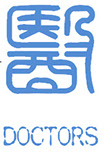
Health Insurance
Health and welfare policy: National Health Insurance(NHI)
In general, the health insurance system has three main goals: Good quality of care, sufficient access to medical treatment, and reasonable cost control. Since the NHI was implemented, the first two goals have been extraordinarily achieved. However, the cost control has given rise to many problems, which becomes the most-concerned controversy in Taiwan.
In a free economy market in health insurance, the various cost of health insurance will strike a balance between the demand/supply of the market and insurers as well as medical institutions. Nevertheless, NHI is a statutorily compulsory insurance. People are bound to buy the insurance. National health insurance business entirely sponsored by the Bureau of National Health Insurance. Medical institutions received full payment from the National Health Insurance Bureau, relying on government control costs, prices, and fare.
Due to raising expenses, National Health Insurance Bureau introduce "total health care payment system" in order to control financial risks, which means National Health Insurance Bureau will no longer pay medical institutions full amounts of medical expense. On the other hand, National Health Insurance Bureau sets a limit on the full amount of medical expenses. If the expenses are higher than the limit, the expenses will be discounted by ratio.
This measure delayed the NHI's bankruptcy, but the financial problems caused by non-economic factors still have no solution. No matter who revolute or how one revolute, people or parliament won't likely to accept this. In short, if people, including medical community, can't reach a consensus of revolution,health and welfare policy will be a time bomb threatening Taiwan forever.
Reference:
https://zh.wikipedia.org/…/%E5%85%A8%E6%B0%91%E5%81%A5%E5%B…
http://thchou.blogspot.tw/2010/02/blog-post.html
Home










